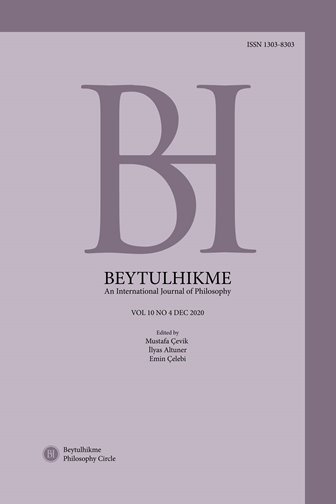Author :
Abstract
Düşünce deneylerini gerçekleştirdiğimizde sonucunda elde edilen bilginin nereden geldiği sorusu düşünce deneylerinin epistemolojik konumuna ilişkin tartışılan en temel konulardan bir tanesidir. Bu doğrultuda, Pierre Duhem düşünce deneylerinin gerçek deneyler ile aynı statüde değerlendirilemeyeceğini ve hatta düşünce deneylerinin gerçek deneylerin bir alternatifi olarak bile kabul edilemeyeceğini belirterek konuya ilişkin şüpheci bir tavır sergilemektedir. James R. Brown ise yeni deneysel kanıtlara dayanmayan ya da eski verilerden mantıksal olarak türetilmeyen, Platoncu düşünce deneyi olarak adlandırılan düşünce deneylerinin a priori bilgiye sezgisel erişim sağladığını ifade etmektedir. Brown’ın aksine, John D. Norton düşünce deneylerinin fiziksel dünyanın bilgisine gizemli bir erişim sağladığı yönündeki düşünceyi kesin bir dille eleştirmekte ve düşünce deneylerinin ampirizmi aşan bir bilgi sağlamasının mümkün olamayacağını ifade etmektedir. Norton-Brown tartışması çerçevesinde bu makalede, Brown'un düşünce deneylerine ilişkin tutumu, konuyla ilgili düşüncelerin eleştirel olarak analiz edilmesiyle desteklenmektedir.
Keywords
Abstract
The question of where the knowledge comes from when we conduct thought experiments has been one of the most fundamental issues discussed in the epistemological position of thought experiments. In this regard, Pierre Duhem shows a skeptical attitude on the subject by stating that thought experiments cannot be evaluated as real experiments or cannot be accepted as an alternative to real experiments. James R. Brown, on the other hand, states that thought experiments, which are not based on new experimental evidence or logically derived from old data, called the Platonic thought experiment, provide intuitive access to a priori knowledge. Unlike Brown, John D. Norton strictly criticizes the idea that thought experiments provide mysterious access to the knowledge of the physical world, and states that thought experiments cannot provide knowledge that transcends empiricism. In the context of the Norton-Brown debate, in this article, Brown's stance on thought experiments is supported by critically analyzing the thoughts put forward on the subject.
Keywords
- Bishop, M. (1999). Why Thought Experiments are Not Arguments. Philosophy of Science, 66, 534-541.
- Brendel, E. (2017). The Argument View: Are Thought Experiments Mere Pictu- resque Arguments? The Routledge Companion to Thought Experiments. (Eds. M. T. Stuart & Y. Fehige & J. R. Brown). New York: Routledge, 281-292.
- Brown, J. R. & Fehige, Y. (2019). Thought Experiments, The Stanford Encyclopedia of Philosophy. https://plato.stanford.edu/archives/win2019/entries/thoughtexperiment.
- Brown, J. R. (1986). Thought Experiments since the Scientific Revolu- tion. International Studies in the Philosophy of Science, 1 (1), 1-15.
- Brown, J. R. (1991). Laboratory of the Mind: Thought Experiments in the Natural Scien- ces. New York: Routledge.
- Brown, J. R. (2004a). Why Thought Experiments Transcend Empiri- cism. Contemporary Debates in the Philosophy of Science. (Ed. C. Hitchcock). Oxford: Blackwell Publishing, 23-43.
- Brown, J. R. (2004b). Peeking into Plato’s Heaven. Philosophy of Science, 71 (5), 1126-1138.
- Buzzoni, M. (2018). Pierre Duhem and Ernst Mach on Thought Experi- ments. HOPOS: The Journal of the International Society for the History of Philosophy of Science, 8 (1), 1-27.
- Cooper, R. (2005). Thought Experiments. Metaphilosophy, 36 (3), 328-347.
- Doko, E. (2015). Albert Einstein. Doğudan Batıya Düşüncenin Serüveni, cilt 4. (Ed. Ş. Öçal). İstanbul: İnsan Yayınları, 535-559.
- Duhem, P. (1954). The Aim and Structure of Physical Theory. (Trans. P. P. Wiener). New Jersey: Princeton University Press.
- Engel, P. (2011). Philosophical Thought Experiments: In or Out of the Armchair? Thought Experiments in Methodological and Historical Contexts. (Eds. K. Ierodiakonou & S. Roux). Leiden: Brill, 143-163.
- Galilei, G. (1954). Dialogues Concerning Two New Sciences. (Trans. H. Crew & A. de Salvio). New York: Dover Publications.
- Häggqvist, S. (1996). Thought Experiments in Philosophy. Stockholm: Almqvist & Wiksell International.
- Hume, D. (1960) A Treatise on Human Nature. (Ed. L. A. Selby). Oxford: Clarendon Press.
- Koyré, A. (2010). Yeniçağ Bilimin Doğuşu: Bilimsel Düşüncenin Tarihi Üzerine İncele- meler. (Çev. K. Dinçer). İstanbul: Gündoğan Yayınları.
- Mach, E. (1976). On Thought Experiments. Knowledge and Error. Dordrecht: Springer, 134-147.
- Newton, I. (1999) The Principia: Mathematical Principles of Natural Philosophy. (Trans. I. B. Cohen & A. Whitman). Berkeley: University of California
- Norton, J. (1991). Thought Experiments in Einstein’s Work. Thought Experiments in Science and Philosophy. (Eds. T. Horowitz & G. Massey). Lanham: Rowman & Littlefield Publishers, 129-148.
- Norton, J. D. (1996). Are Thought Experiments Just What You Tho- ught? Canadian Journal of Philosophy, 26 (3), 333-366.
- Norton, J. D. (2004b). Why Thought Experiments Do Not Transcend Empiri- Oxford: Blackwell Publishing, 44-66. Öz: Düşünce deneylerini gerçekleştirdiğimizde sonucunda elde edilen bilginin nereden geldiği sorusu düşünce deneylerinin epistemolojik konumuna ilişkin tartışılan en temel konulardan bir tanesidir. Bu doğrultuda, Pierre Duhem düşünce deneylerinin gerçek deneyler ile aynı statüde değerlendirilemeyeceğini ve hatta düşünce deneylerinin gerçek deneylerin bir alternatifi olarak bile kabul edilemeyeceğini belirterek konuya ilişkin şüpheci bir tavır sergilemektedir. James R. Brown ise yeni deneysel kanıtlara dayanmayan ya da eski verilerden mantıksal olarak türetilmeyen, Platoncu düşünce deneyi olarak adlandırılan düşünce deneylerinin a priori bilgiye sezgisel erişim sağladığını ifade etmektedir. Brown’ın aksine, John D. Norton düşünce deneylerinin fiziksel dünyanın bilgisine gizemli bir erişim sağladığı yönündeki düşünceyi kesin bir dille eleştirmekte ve düşünce deneylerinin ampirizmi aşan bir bilgi sağlamasının mümkün olamayacağını ifade etmektedir. Norton-Brown tartışması çerçevesinde bu makalede, Brown'un düşünce deneylerine ilişkin tutumu, konuyla ilgili düşüncelerin eleştirel olarak analiz edilmesiyle desteklenmektedir. Anahtar Kelimeler: Düşünce deneyi, a priori bilgi, argüman tezi, Platoncu düşünce deneyleri.





